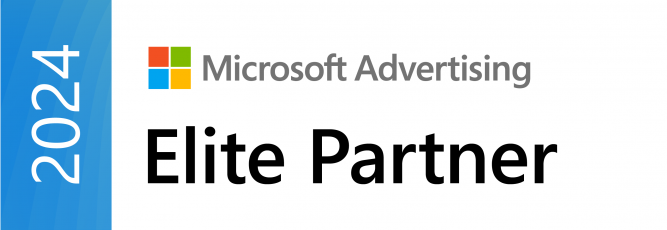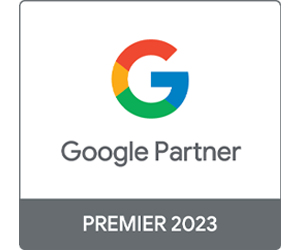
Targeting the right keywords determines the success of your campaigns…
Keyword research plays an important role in developing high-performing, profitable PPC and SEO campaigns. If you’re bidding on the incorrect keywords or you aren’t using a combination of short-tail and long-tail keywords, you may be missing out on potential success.
Whether you’re looking to further develop your content marketing or expand your list of target keywords for your PPC campaigns, utilising the right keyword research tool can create a wide range of opportunities for your business.
We specialise in PPC management services, which has given us excellent industry insights into some of the best keyword research tools on the market. We have put together a list of our top 5 recommended keyword research tools that businesses can use to improve their existing keyword set.
Before we delve into our list, businesses should understand the importance of keyword research and the impact it can have on both your PPC and content marketing campaigns.
Nowadays, the internet is the most important channel for reaching potential customers, with a 50% penetration of the global population. There is a large amount of noise and competition online, therefore, it’s important to take steps to ensure you get in front of your target audience.
Keywords are the blueprint of your digital marketing campaigns, helping to drive every decision you make. For example, if you’re an online clothing retailer looking to advertise your products online, you must target certain keywords in your content, and your ads, to place yourself in front of users with the intent to buy.
If you aren’t targeting the right keywords, or you’re creating content based around things nobody is searching for, you are missing out on potential conversions. Many businesses with online websites make this mistake, which is a reason why 90.63% of pages get no traffic from Google.
Keyword research is the process of learning the language of your target audiences, and the words and phrases they use to find the products they want. You can then analyse, compare, and prioritise the best keywords for your campaigns and create more opportunities for your website.
To begin your keyword research, you must first brainstorm “seed” keywords. Seed keywords are the foundation of the keyword research process and can be used to define your niche, as well as help you to identify your competitors.
To identify these keywords, you can look directly at your website. If you’re selling products, you will already be on your way to developing a list of seed keywords. For example, if you’re a coffee retailer, your keywords may look like the following:
These are simple keywords that users will type into search engines to find what they are looking for. However, it’s important to note that not all these seed keywords are worth targeting, as they may have a very competitive bid.
Instead, you should use seed keywords in the next steps of the keyword research process. You can do this by typing in one of those seed keywords in a search engine and looking to the search suggestions for further potential keywords. This can also help you to identify more competing businesses.
There is a wide range of keyword research tools available, with many of them free to use. Below, we have highlighted our top 5 recommendations:
At the top of the list is SEMrush. This innovative tool works to provide a list of 5-10 specific keywords that your competitors are already using in their campaigns. In addition to this, SEMrush can uncover long-tail keyword phrases, provide yearly keyword trends, and offer insights into keyword difficulty and organic traffic insights.
Google Keyword Planner offers businesses a simple, easy to use keyword platform. Do not let its simplicity fool you as Google Keyword Planner is one of the most accurate sources of keyword data on the market. This is because the data comes directly from Google.
Ahrefs is one of the best keyword research tools for businesses. For example, it can provide 1,000+ keyword suggestions to help you expand on your existing keyword list while ensuring your keywords remain relevant. Also, it shows an accurate keyword difficulty score and click metrics for improving your CTR.
This is an all-in-one SEO platform and keyword research tool. This platform is page-oriented to provide in-depth analysis. It combines website analytics, a keyword research tool and SERP analysis to help you to streamline your SEO efforts.
Soovle works by pulling together keyword ideas from Google, Bing, YouTube, Yahoo! and Amazon, to name just a few. By accessing keywords pulled from all these different platforms, you can find untapped keywords that your competitors don’t know about. This can mean adding keywords to your list that have a low bid and CPC, making them easier to target in your SEO and PPC marketing efforts.
These are just 5 of the many keyword research tools out there. We recommend that you take your time trialling these different platforms to find the perfect one for your needs.
As well as finding the perfect keyword research tool, it can also be beneficial to have a keyword reporting tool. At Diginius, we have our very own keyword reporting tool. The Diginius Insight Lead Intelligence module allows you to view what keyword was searched and the resulting activity that came from this, feeding valuable data to your teams.
For more information on our keyword reporting tool, or to find out how we can help you to develop a list of high-performing keywords, contact the team today. We also offer a Google Ads training course to help PPC managers to get the best results out of their PPC campaigns.







© 2024 Diginius Ltd. All rights reserved.

Chester Yang is the Microsoft Program Manager at Diginius with a background in economics and quantitative research.
At Diginius, Chester focuses on nurturing partnerships with PPC agencies and integrating marketing and sales solutions.